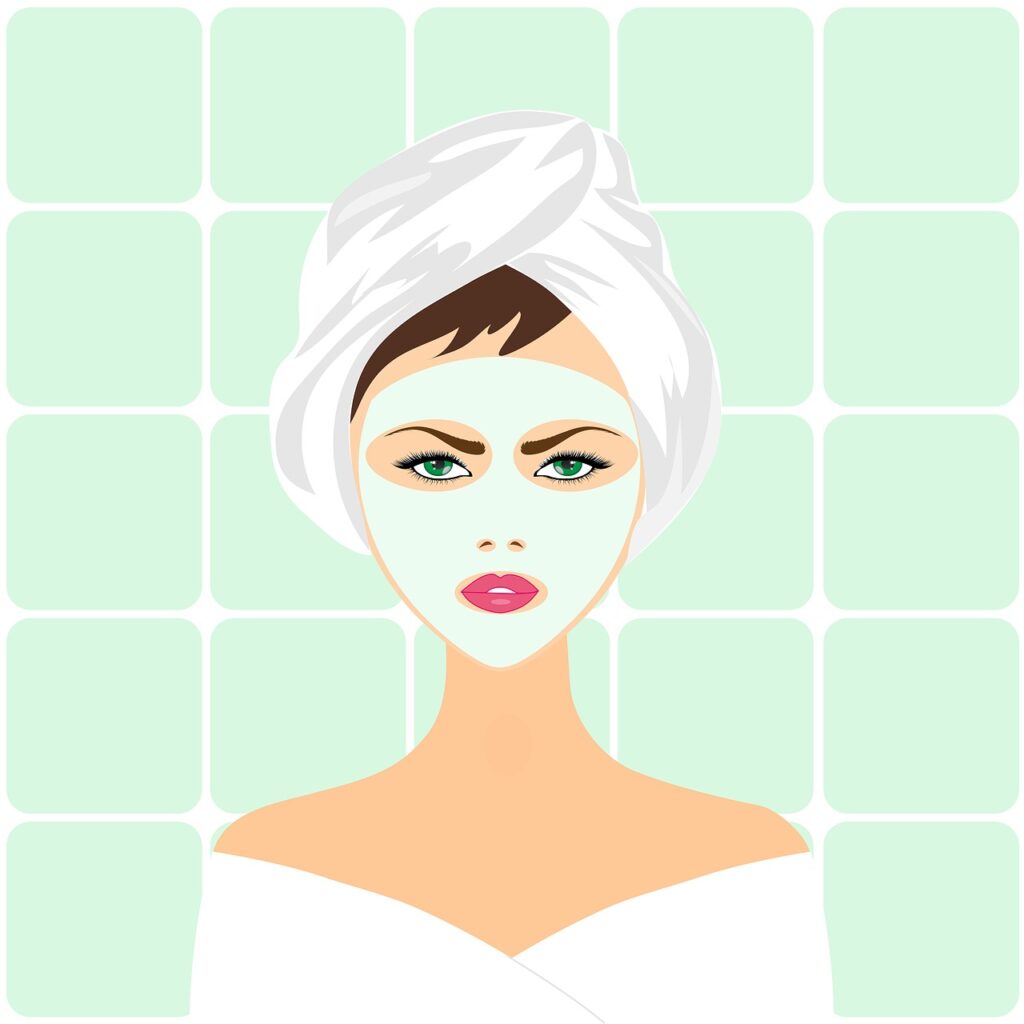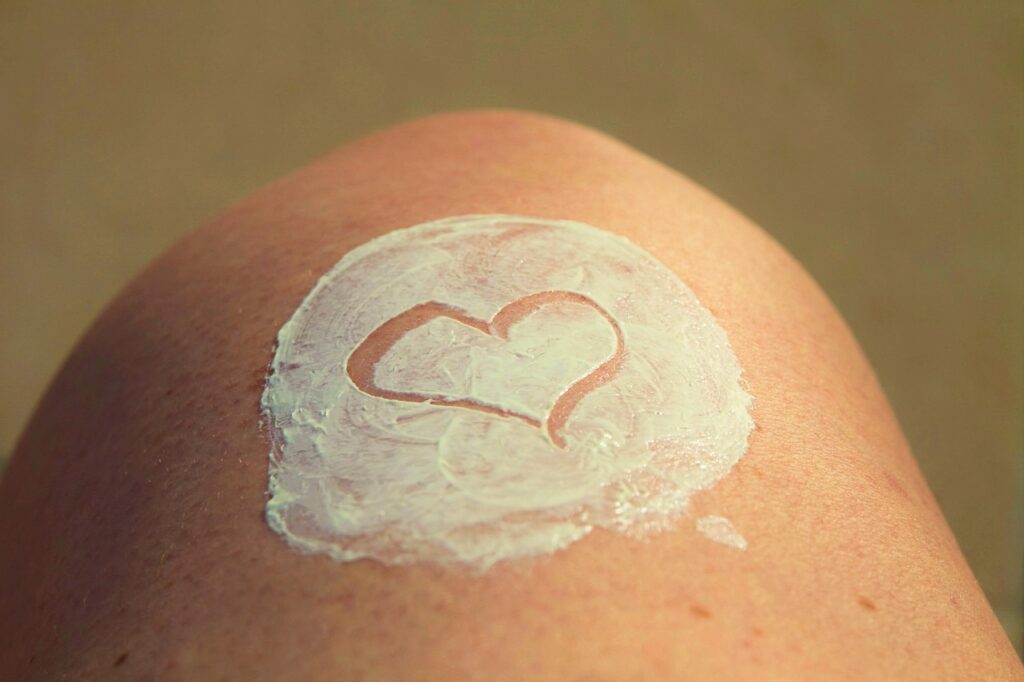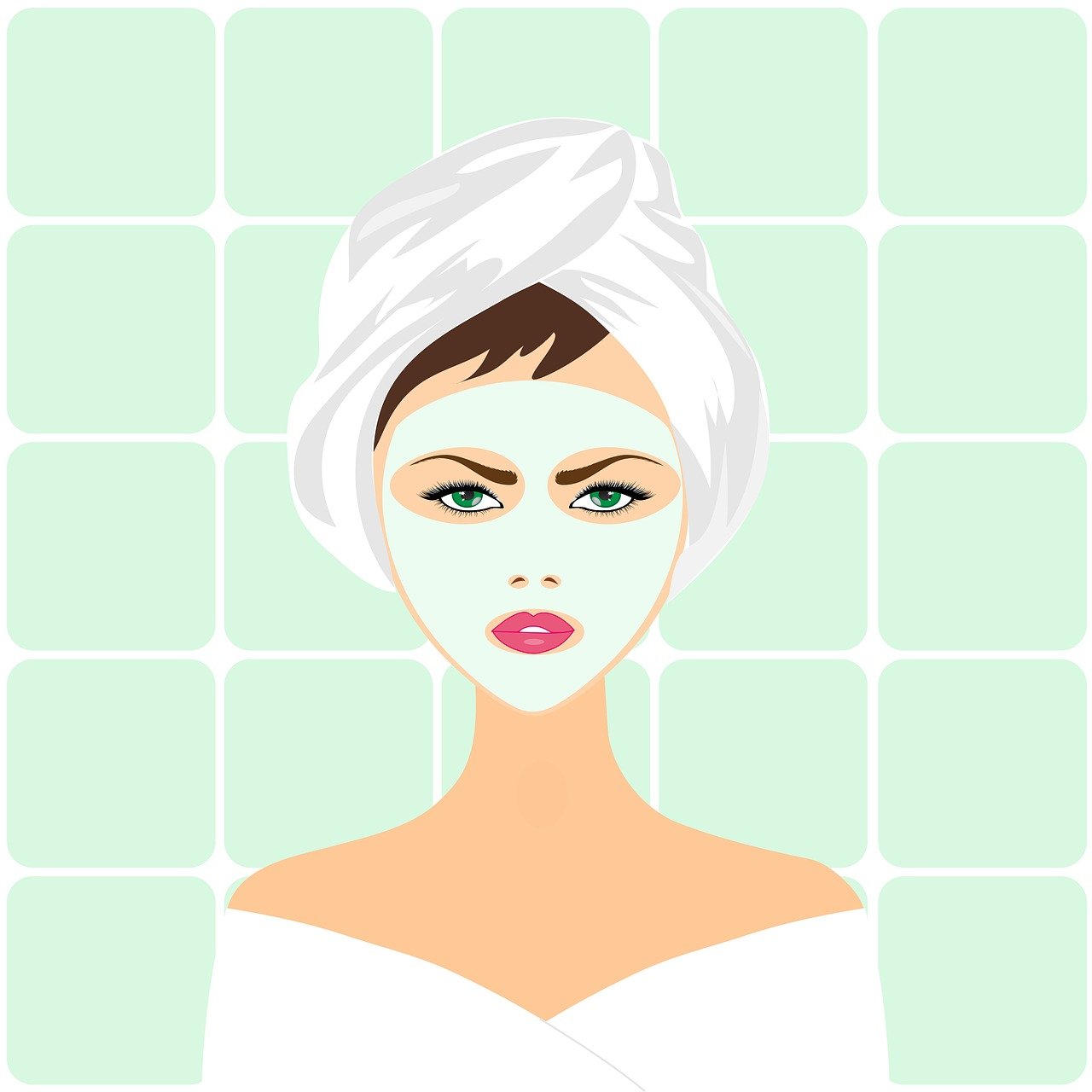Are you tired of battling those stubborn acne scars? Look no further! In this article, we will be exploring the magical powers of retinol in banishing acne scars and revealing a youthful, scar-free complexion. Whether you’re dealing with mild or severe acne scars, we’ve got you covered. Join us on this journey as we uncover the secrets of retinol and how it can transform your skin, giving you the confidence to embrace your natural beauty. Get ready to say goodbye to those pesky scars and hello to a radiant, flawless complexion!

What are acne scars?
Acne scars are a common skin concern that many people experience. They are the result of the skin’s healing process after severe acne breakouts. When the pores become clogged with excess oil, dead skin cells, and bacteria, it can lead to inflammation and breakouts. If these breakouts are severe and penetrate deep into the skin, they can leave behind scars. Acne scars can vary in appearance and texture, ranging from shallow depressions to raised and discolored marks on the skin.
Types of acne scars
There are several types of acne scars that can occur, each with its own characteristics. The most common types include:
-
Atrophic scars: These scars are characterized by shallow depressions in the skin. They can be further categorized into ice pick scars, which are deep and narrow, and boxcar scars, which have broader depressions with defined edges.
-
Hypertrophic scars: Unlike atrophic scars, hypertrophic scars are raised and can appear as lumps or bumps on the skin. They occur when there is an overproduction of collagen during the healing process.
-
Post-inflammatory hyperpigmentation (PIH): This type of scar is not a true scar but rather a discoloration of the skin. PIH appears as dark spots or patches and is more common in people with darker skin tones.
-
Rolling scars: Rolling scars are characterized by a wave-like appearance. They occur when fibrous bands of tissue develop between the deeper layers of the skin, pulling the surface of the skin downward.
Causes of acne scars
Acne scars are primarily caused by severe or recurrent acne breakouts that penetrate deep into the skin. The following factors can increase the risk of developing acne scars:
-
Picking or squeezing acne lesions: This can further damage the skin and increase the likelihood of scarring.
-
Delayed or inadequate treatment of acne: Not treating acne in its early stages can lead to prolonged inflammation and an increased risk of scarring.
-
Genetics: Some individuals may be genetically predisposed to a higher risk of developing acne scars.
-
Hormonal imbalances: Fluctuations in hormone levels, such as during puberty or hormonal disorders, can contribute to the development of acne and subsequent scarring.
-
Poor wound healing: Individuals with impaired wound healing may be more prone to developing noticeable scars.
Understanding retinol
What is retinol?
Retinol is a derivative of vitamin A and a popular ingredient in skincare products. It is known for its ability to improve skin texture, reduce the appearance of fine lines and wrinkles, and promote cell turnover. Retinol is available in various strengths and formulations, making it a versatile option for addressing different skin concerns, including acne scars.
How does retinol work?
Retinol works by increasing cell turnover and stimulating collagen production in the skin. It helps to accelerate the shedding of dead skin cells and promotes the growth of new, healthier cells. By enhancing collagen production, retinol can also improve the texture and elasticity of the skin, reducing the appearance of acne scars over time.
Benefits of using retinol for acne scars
Using retinol for acne scars can offer several benefits. Some of the key advantages include:
-
Improved skin texture: By promoting cell turnover and collagen production, retinol can help diminish the appearance of acne scars and smooth out rough skin texture.
-
Lightened hyperpigmentation: Retinol can also help fade post-inflammatory hyperpigmentation, reducing the discoloration associated with acne scars.
-
Reduced appearance of fine lines and wrinkles: While primarily known for its anti-acne properties, retinol can also have anti-aging effects on the skin, minimizing the appearance of fine lines and wrinkles.
-
Preventive effects: Regular use of retinol can help prevent future breakouts, minimizing the risk of new acne scars forming.

Choosing the right retinol product
Understanding different forms of retinol
Retinol is available in various forms, including creams, serums, and oils. It is essential to understand the different forms to choose the most suitable product for your specific acne scars. Here are some common forms of retinol:
-
Creams: Retinol creams are the most common form and are suitable for most skin types. They are typically formulated with other moisturizing ingredients to minimize potential dryness or irritation.
-
Serums: Retinol serums are lightweight and easily absorbed by the skin. They are ideal for individuals with oily or combination skin who prefer a lighter texture.
-
Oils: Retinol oils are often mixed with other nourishing oils, making them suitable for individuals with dry or mature skin. They provide moisture while delivering the benefits of retinol.
Factors to consider when selecting a retinol product
When choosing a retinol product for acne scars, consider the following factors:
-
Strength: Retinol products come in different strengths, ranging from low to high. Beginners should start with lower strengths and gradually increase to avoid excessive irritation.
-
Formulation: Look for retinol products that are formulated for your skin type. If you have sensitive skin, opt for milder formulations or products with added soothing ingredients.
-
Additional ingredients: Some retinol products include additional ingredients such as hyaluronic acid or niacinamide, which can enhance the overall benefits for acne scars.
-
Brand reputation and reviews: Research the reputation of the brand and read customer reviews to ensure the product is effective and reliable.
Recommended retinol products for acne scars
-
[Product 1]: This retinol cream is highly recommended for its gentle yet effective formula. It contains a moderate concentration of retinol and is suitable for most skin types.
-
[Product 2]: If you prefer a serum, this option is a great choice. It has a lightweight texture and is packed with retinol and other antioxidants to combat acne scars.
-
[Product 3]: For those with dry or mature skin, this retinol oil is an excellent option. It provides intense hydration while delivering the benefits of retinol to fade acne scars.
Remember, it is essential to patch test any new retinol product and gradually introduce it into your skincare routine to ensure compatibility and minimize potential side effects.
Using retinol for acne scars
Precautions and usage guidelines
Before incorporating retinol into your skincare routine, it is important to be aware of certain precautions and usage guidelines:
-
Patch test: Test the product on a small area of your skin to check for any allergic reactions or negative skin responses.
-
Start slowly: Begin by using the retinol product once or twice a week, gradually increasing the frequency over time to allow your skin to adjust.
-
Follow instructions: Always follow the recommended usage instructions provided by the product manufacturer. Overuse of retinol can lead to excessive dryness and irritation.
-
Sun protection: Retinol can make the skin more sensitive to sunlight, so it is crucial to wear sunscreen with a high SPF during the day. This helps protect the skin and prevent further damage.
Steps to incorporate retinol into your skincare routine
To effectively use retinol for acne scars, follow these steps to incorporate it into your skincare routine:
-
Cleanse: Start by cleansing your face with a gentle cleanser to remove any dirt or impurities.
-
Moisturize: Apply a lightweight moisturizer to hydrate your skin before applying retinol. This creates a protective barrier and minimizes dryness or irritation.
-
Apply retinol: Take a small amount of retinol product and apply it evenly to your face, focusing on areas with acne scars. Avoid the delicate eye area.
-
Follow with moisturizer: Once the retinol has fully absorbed into your skin, apply a moisturizer to further hydrate and protect your skin.
-
Nighttime use: It is best to use retinol at night as sunlight can degrade the effectiveness of the product.
Expected results and timeline
The results of using retinol for acne scars can vary depending on the severity of the scars and individual skin characteristics. Generally, it takes several weeks to months of consistent use to see noticeable improvements. Retinol works by promoting cellular turnover, so it takes time for the skin to renew and for new cells to replace the scarred tissue.
During the initial use, some individuals may experience mild dryness, redness, or flaking as their skin adjusts to the retinol. However, with continued use and proper skincare, these side effects typically subside.

Combining retinol with other acne scar treatments
The role of exfoliation in reducing acne scars
Exfoliation plays a vital role in reducing the appearance of acne scars by removing dead skin cells and promoting cell turnover. However, it is important to use gentle exfoliants that do not aggravate or damage the skin further. Mechanical exfoliation techniques, such as using a soft brush or gentle scrub, can be effective. Chemical exfoliation with ingredients like alpha hydroxy acids (AHAs) or beta hydroxy acids (BHAs) can also help to improve the texture of acne scars.
Using retinol with vitamin C
Vitamin C is an antioxidant that can help brighten the skin, fade hyperpigmentation, and enhance collagen production. When combined with retinol, it can boost the overall effects of reducing acne scars. Vitamin C is typically used during the daytime as it offers additional protection against free radicals and photodamage. However, it is important to avoid using retinol and vitamin C together within the same routine as they can potentially counteract each other’s potency. It is best to alternate days or use them in separate morning and evening routines.
Incorporating laser treatments with retinol
Laser treatments can be an effective option for reducing the appearance of acne scars. These treatments work by targeting the damaged layers of the skin and stimulating collagen production. Combining laser treatments with retinol can enhance the overall results. However, it is essential to consult with a dermatologist or skincare professional to determine the most suitable treatment plan and timing for using retinol in combination with laser treatments.
Dealing with retinol side effects
Common side effects of retinol
While retinol is generally safe to use, some individuals may experience side effects, particularly during the initial stages of use. Common side effects of retinol include:
-
Dryness and flaking: Retinol can cause dryness and flaking, especially if used in higher concentrations or too frequently.
-
Redness and sensitivity: Some people may experience mild redness and increased sensitivity to other skincare products.
-
Purging: Retinol can initially cause a temporary increase in breakouts as it accelerates cellular turnover and brings underlying impurities to the surface.
Tips to minimize and manage side effects
To minimize and manage the side effects of retinol, consider the following tips:
-
Gradual introduction: Start with a lower concentration of retinol and gradually increase the frequency and strength as your skin becomes accustomed to it.
-
Moisturize: Apply a moisturizer before and after using retinol to combat dryness and minimize irritation.
-
Sun protection: Protect your skin from the sun by wearing sunscreen daily with a high SPF. This helps to reduce the risk of sunburn and further sensitivity.
-
Buffering technique: If the side effects are particularly bothersome, try “buffering” the retinol by applying a moisturizer before applying the retinol. This can help to minimize potential irritation while still enjoying the benefits of retinol.
Retinol alternatives for acne scars
Other topical treatments for acne scars
While retinol is a popular and effective choice for treating acne scars, there are other topical treatments available. Some alternative treatments for acne scars include:
-
Alpha hydroxy acids (AHAs): AHAs, such as glycolic acid or lactic acid, can help exfoliate and improve the appearance of acne scars.
-
Beta hydroxy acids (BHAs): BHAs, like salicylic acid, are effective in targeting acne scars as they can penetrate into the pores and help reduce inflammation and promote healing.
-
Niacinamide: Niacinamide is a form of vitamin B3 that can help fade acne scars and improve overall skin texture.
-
Azelaic acid: Azelaic acid is known for its brightening properties and can help fade hyperpigmentation associated with acne scars.
Natural remedies for acne scars
In addition to topical treatments, some natural remedies can also help improve the appearance of acne scars. These remedies include:
-
Aloe vera: Applying aloe vera gel to acne scars can help soothe the skin and reduce inflammation. It may also promote healing and minimize the appearance of scars.
-
Lemon juice: The acidic properties of lemon juice can help lighten hyperpigmentation caused by acne scars. However, be cautious as lemon juice can also cause skin irritation if not diluted properly.
-
Rosehip oil: Rosehip oil is rich in essential fatty acids and antioxidants, making it beneficial for repairing and regenerating damaged skin. It may help fade acne scars and improve overall skin tone.
-
Honey: Honey has antibacterial and wound-healing properties. Applying honey directly to acne scars can help in their healing process and minimize their appearance.
While natural remedies can be beneficial, it is essential to understand that they may not have the same scientific evidence or potency as medically-approved treatments. It is always recommended to consult with a dermatologist before trying any new natural remedy.
Consulting with a dermatologist
When to seek professional advice
If you are struggling with severe acne scars or have tried over-the-counter treatments without significant improvement, it may be time to seek professional advice. Consider consulting with a dermatologist in the following situations:
-
Severe scarring: If your acne scars are deep, extensive, or causing emotional distress, a dermatologist can assess your condition and recommend more advanced treatments.
-
Persistent or worsening scars: If your acne scars are not responding to at-home treatments or are getting worse, a dermatologist can provide a personalized treatment plan.
-
Complex skin concerns: If you have other skin conditions or underlying health conditions that may complicate the treatment of acne scars, a dermatologist’s expertise can be invaluable.
What to discuss with a dermatologist
When consulting with a dermatologist, be prepared to discuss the following:
-
Your medical history: Provide information about any pre-existing medical conditions, previous treatments for acne scars, and any allergies or sensitivities you may have.
-
Current skincare routine: Detail your current skincare routine, including the products and techniques you use.
-
Acne scar concerns: Describe your specific concerns regarding your acne scars, such as their appearance, texture, and any associated symptoms.
-
Expectations and goals: Clearly communicate your expectations and goals for treating your acne scars, as this will help guide the dermatologist in recommending the appropriate treatment plan.
Prescriptions and higher-strength retinoids
In some cases, a dermatologist may prescribe higher-strength retinoids or other medications to treat severe acne scars. These prescription-strength treatments can be more potent and may provide more significant improvements in scar appearance. They should be used under the guidance and supervision of a healthcare professional to ensure safety and effectiveness.
Additional skincare tips for scar-free skin
In addition to using retinol and other targeted treatments, incorporating the following skincare tips into your routine can help prevent and minimize the appearance of acne scars:
Importance of sunscreen
Sunscreen is an essential part of any skincare routine, especially when it comes to preventing acne scars. UV radiation can worsen the appearance of existing scars and cause further pigmentation issues. Apply a broad-spectrum sunscreen with a high SPF every day, even on cloudy or rainy days, to protect your skin from harmful UV rays.
Effective acne prevention strategies
Preventing acne breakouts is crucial in reducing the risk of scarring. Incorporate these effective acne prevention strategies into your daily routine:
-
Keep your face clean: Wash your face twice daily with a gentle cleanser to remove excess oil, dirt, and bacteria.
-
Avoid touching and picking: Refrain from touching your face unnecessarily and absolutely resist the urge to pick or squeeze acne lesions, as this can lead to scarring.
-
Use non-comedogenic products: Choose skincare and cosmetic products labeled as non-comedogenic, as they are less likely to clog pores or contribute to acne formation.
-
Maintain a healthy diet and lifestyle: Eating a nutritious diet, managing stress levels, and getting regular exercise can all contribute to healthy skin and minimize the risk of acne breakouts.
Maintaining a healthy lifestyle for skin health
Healthy lifestyle habits can greatly enhance your skin’s appearance and overall health. Incorporate these habits into your daily routine:
-
Stay hydrated: Drink plenty of water throughout the day to hydrate your skin from within.
-
Eat a balanced diet: Opt for a diet rich in fruits, vegetables, and whole grains, as they provide essential vitamins and nutrients for skin health.
-
Get sufficient sleep: Aim for seven to eight hours of quality sleep each night to ensure optimal skin repair and rejuvenation.
-
Avoid smoking and excessive alcohol consumption: Smoking and excessive alcohol consumption can damage the skin and hinder the healing process, increasing the risk of scarring.
Conclusion
Retinol is a powerful ingredient for combating acne scars and achieving youthful, scar-free skin. By understanding the different types of acne scars, the causes behind them, and how retinol works, you can make an informed decision about incorporating retinol into your skincare routine. By choosing the right retinol product, following proper usage guidelines, and combining it with other acne scar treatments, you can maximize the benefits and minimize potential side effects. Remember to consult with a dermatologist for personalized advice and recommendations, and maintain a holistic approach to skincare by following effective acne prevention strategies and maintaining a healthy lifestyle. With consistency and patience, you can say goodbye to acne scars and hello to youthful, scar-free skin.
